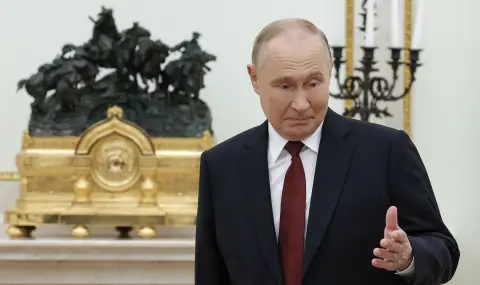During this week, the political and media focus was on Ukraine - on the occasion of Ukrainian President Volodymyr Zelensky's visit to the US, his meetings and his intentions to present a "Plan for Victory". But Vladimir Putin decided to divert attention - and at this very moment to come up with "clarifications" according to the Russian nuclear doctrine.
As stated by the Kremlin, in the future a nuclear power that supports another country with conventional weapons in its attack on Russia will be considered part of the aggression. At the same time, Putin left open the question of whether Russia would actually react with nuclear weapons in such a case, notes the German public television station ZDF in its explanatory material on the subject.
Experts on Russia such as Margarete Klein from the "Science and Politics" they see in Putin's words a rhetorical bluff rather than a real aggravation of the situation, writes the German social-legal media. "The Clarification" of Putin does not change anything essential in Russian nuclear doctrine. As early as 2010, the military doctrine states that in the event of a conventional attack that threatens the existence of the state, Russia can use nuclear weapons, the expert explains.
"Putin's next nuclear threat"
Nevertheless, Putin's appearance succeeded for a few hours in diverting attention from the "Victory Plan" of Ukraine to the "red lines" of Russia. And to the danger of an escalation of the war, writes ZDF.
But security experts such as Frank Sauer of the Bundeswehr University doubt that the danger of escalation has really increased. "From day one of the full-scale invasion, Putin has been trying to reduce support for Ukraine through nuclear threats. It's just another one," Sauer told the German public-law media. According to him, Putin's goal was to increase the existing uncertainty.
Mixed signals for peace talks
This is not the first time Russia has tried to push Ukraine out of the spotlight ahead of upcoming important events, ZDF notes. The media recalls that the same thing happened before the peace summit in June, which was held in Switzerland - on the eve of which Putin presented his own conditions for the start of peace negotiations.
Three months after the meeting in Switzerland, there is growing demand for diplomatic efforts. That Russia is sending mixed signals is probably part of the Kremlin's calculations. At the beginning of September, Putin basically demonstrated readiness for talks, but this week the Kremlin's position has reversed.
Now there is constant talk of victory - both from Zelensky's side and from the Kremlin. The German media recalls that on Wednesday Russian Foreign Minister Sergey Lavrov said: "They do not understand another language. We will win. There is no doubt". In the same spirit were the words of the hardliner and former president Dmitry Medvedev, who wrote the following in Telegram: "No negotiations until the enemy is completely defeated".
The Kremlin's nuclear threats
In New York, Ukraine pressures the West with the debate over the use of long-range weapons against targets on Russian soil, and Putin fires back with nuclear threats.
Margarete Klein shares the following opinion with ZDF: "Putin's goal is above all to instill fear in the leaderships and peoples of Western countries in order to prevent further military support and above all the possibilities of Ukraine to continue to carry out airstrikes against targets on Russian territory".
But will the Kremlin's plan succeed? This will become clear during Zelensky's visit to the US, writes ZDF. But one thing is clear: Putin's game with fear will continue, concludes the German public-law media.
